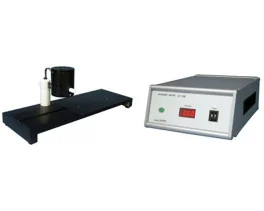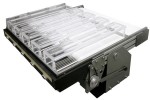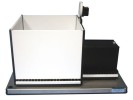Authors
V. L. Billat, E. Mouisel, N. Roblot, J. Melki.
Lab
Unité de Formation et de Recherche Fondamentale et Appliquée, Laboratory of Exercise Physiology EA3872, and 2Molecular Neurogenetics Laboratory, Institut National de la Santé et de la Recherche Médicale, E223, University of Evry, Evry, France
Journal
Journal of Applied Physiology
Abstract
With the generation of mouse models of human cardiovascular or neuromuscular disorders, the development of noninvasive methods to evaluate the physiological responses to exercise presents an important challenge. The possibility for determining critical speed (CS) in the mouse model was examined according to strain (CD1, C57BL/6J, FVB/N) and sex. Sixty mice performed four exhaustive runs on a treadmill to determine their CS. Twenty-one performed an incremental test to determine the velocity at the lactate threshold. CS was significantly different between the strains (P < 0.0001) but not between sexes. Two measures of heritability showed that CS was partially heritable. CS was not significantly different from lactate threshold velocity. We conclude that CS, which reflects the aerobic capacity, can be determined in mice, as in humans and horses. Considering the intrastrain variability, CS could represent a valuable means for designing an optimal and individualized physical training in mice.
BIOSEB Instruments Used:
Treadmill (BX-TM),Passive avoidance (LE870)

 Pain - Thermal Allodynia / Hyperalgesia
Pain - Thermal Allodynia / Hyperalgesia Pain - Spontaneous Pain - Postural Deficit
Pain - Spontaneous Pain - Postural Deficit Pain - Mechanical Allodynia / Hyperalgesia
Pain - Mechanical Allodynia / Hyperalgesia Learning/Memory - Attention - Addiction
Learning/Memory - Attention - Addiction Physiology & Respiratory Research
Physiology & Respiratory Research












![Dynamic Weight Bearing 2.0 – Postural Module [Add-on]](https://bioseb.com/733-home_default/dynamic-weight-bearing-20-add-on-postural-module.jpg)























 Pain
Pain Central Nervous System (CNS)
Central Nervous System (CNS) Neurodegeneration
Neurodegeneration Sensory system
Sensory system Motor control
Motor control Mood Disorders
Mood Disorders Other disorders
Other disorders Muscular system
Muscular system Joints
Joints Metabolism
Metabolism Cross-disciplinary subjects
Cross-disciplinary subjects CONFERENCES & MEETINGS
CONFERENCES & MEETINGS 
